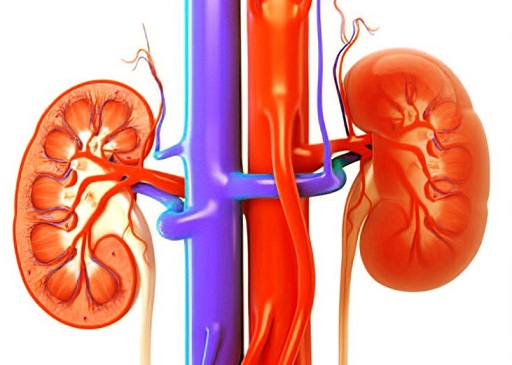Taiwanese study finds that all types of COVID-19 vaccines increase risk for glomerular disease
Nikhil Prasad Fact checked by:Thailand Medical News Team Aug 01, 2024 1 year, 6 months, 4 days, 9 hours, 17 minutes ago
Vaccine News: A groundbreaking study conducted by Taiwanese researchers has discovered that all types of COVID-19 vaccines can potentially lead to a serious kidney condition known as Vaccine-Associated Glomerular Disease (CVAGD). This
Vaccine News report explores the study’s findings and what they mean for the millions of people who have received COVID-19 vaccinations.
 All types of COVID-19 vaccines increase risk for glomerular disease
All types of COVID-19 vaccines increase risk for glomerular disease.
The Study and Its Participants
The study was carried out by a team of researchers from several prestigious institutions in Taiwan, including Taichung Veterans General Hospital, Tunghai University, National Chung Hsing University, Shinfu Clinic, and Guomao Clinic. The research focused on patients who underwent renal biopsies between June 2021 and October 2022 at Taichung Veterans General Hospital, a leading institute in renal biopsy in Taiwan.
What is Vaccine-Associated Glomerular Disease?
Glomerular diseases are a group of conditions that affect the glomeruli, the tiny filters in the kidneys. These diseases can lead to severe kidney damage and are characterized by symptoms such as proteinuria (excess protein in the urine) and hematuria (blood in the urine). In this study, CVAGD refers to glomerular diseases that emerged following COVID-19 vaccination.
Methodology
The researchers meticulously reviewed the medical charts of 286 patients who had undergone renal biopsies during the study period. After excluding cases unrelated to vaccination or those with pre-existing conditions, they identified 14 patients with highly suspected CVAGD. These patients exhibited new-onset glomerular disease symptoms shortly after receiving COVID-19 vaccines.
Key Findings
-Types of Vaccines and Glomerular Diseases: The study found that all three common COVID-19 vaccines…..Oxford-AstraZeneca (ChAdOx1-S), Moderna (mRNA-1273), and Pfizer-BioNTech (BNT162b2)…were associated with CVAGD. The majority of cases were linked to Moderna (42.9%), followed by Oxford-AstraZeneca (35.7%) and Pfizer-BioNTech (21.4%).
-Types of Glomerular Diseases Identified: The most common CVAGD identified was immunoglobulin A (IgA) nephropathy (35.7%), followed by antineutrophil cytoplasmic antibody (ANCA)-related rapidly progressive glomerulonephritis (RPGN) (28.6%). Other identified conditions included minimal change disease, focal segmental glomerulosclerosis, membranous glomerulonephritis, and lupus nephritis.
-Symptoms and Diagnosis: All 14 patients exhibited proteinuria and hematuria, with elevated urinary protein-to-creatinine ratios and serum creatinine levels. The diagnosis was confirmed through renal biopsies.
Detailed Findings
The study delved into the specifics of each case. For instance, patients with IgA
nephropathy generally had favorable outcomes with timely treatment, while those with ANCA-related RPGN had poorer prognoses. The median age of patients was 50 years, and most did not have significant pre-existing conditions. Treatment varied based on the type and severity of the disease, but it often involved immunosuppressants and supportive therapies.
Impact of Vaccine Doses
An interesting aspect of the study was the impact of multiple vaccine doses. The researchers found that the risk of developing CVAGD increased with the number of doses received. About 71.4% of the cases occurred after receiving more than one dose, highlighting the potential cumulative effect of the vaccines.
Treatment and Recovery
Most patients responded well to treatment, with improvements in renal function. However, outcomes varied significantly based on the type of glomerular disease. For example, patients with minimal change disease and lupus nephritis showed complete recovery, while those with ANCA-related RPGN had limited improvement. (It should be noted that in actual settings, most vaccinated individuals who started developing kidney issues do not even know they had such conditions and hence were not receiving any treatments till the conditions progressed to late stages.)
Broader Implications
This study is significant as it adds to the growing body of evidence regarding the potential side effects of COVID-19 vaccines. While vaccines are crucial in controlling the pandemic (As claimed but not proven), these findings underscore the importance of monitoring and managing vaccine-related complications. The researchers call for further studies to confirm these findings and to explore the underlying mechanisms linking COVID-19 vaccines to glomerular diseases.
Conclusion
The Taiwanese study highlights the potential risks of COVID-19 vaccines in triggering glomerular diseases. While the benefits of vaccination in preventing severe COVID-19 outcomes are well-established, it is essential to remain vigilant about possible adverse effects. Healthcare providers should consider monitoring kidney function in patients receiving COVID-19 vaccines, especially those with pre-existing kidney conditions.
The study findings were published in the peer-reviewed journal: Journal of Clinical Medicine.
https://www.mdpi.com/2077-0383/13/15/4494
For the latest
Vaccine News, keep on logging to Thailand Medical News.
Read Also:
https://www.thailandmedical.news/news/breaking-news-gene-study-reveals-how-covid-19-mrna-vaccine-leads-to-high-risk-of-iga-nephropathy-eventual-kidney-failure-and-possible-cancers
https://www.thailandmedical.news/news/covid-19-mrna-jabs-can-cause-new-onset-of-acute-interstitial-nephritis
